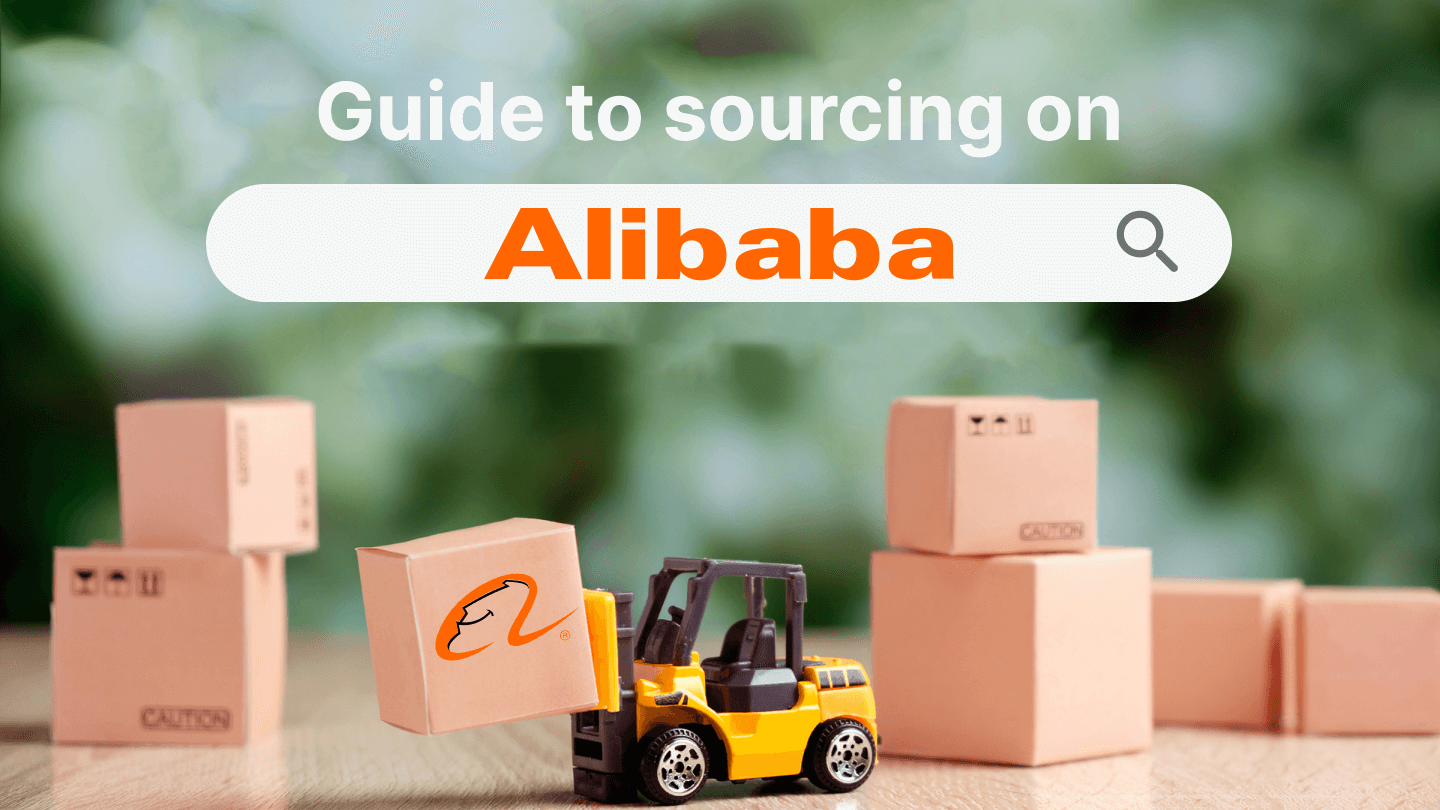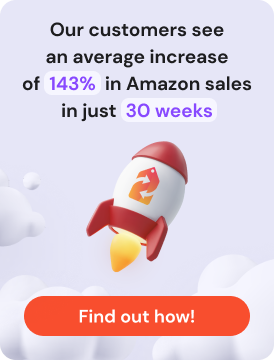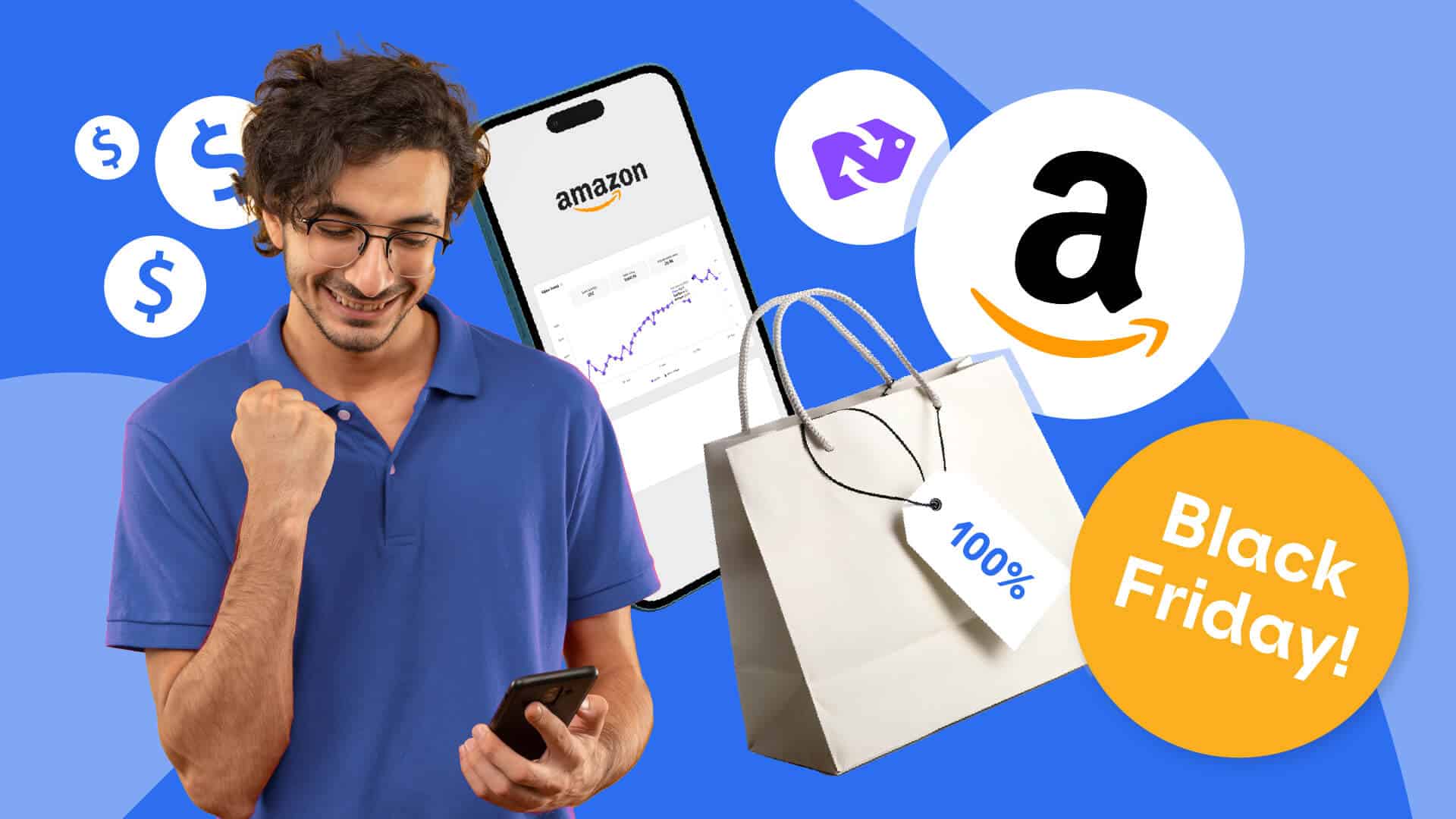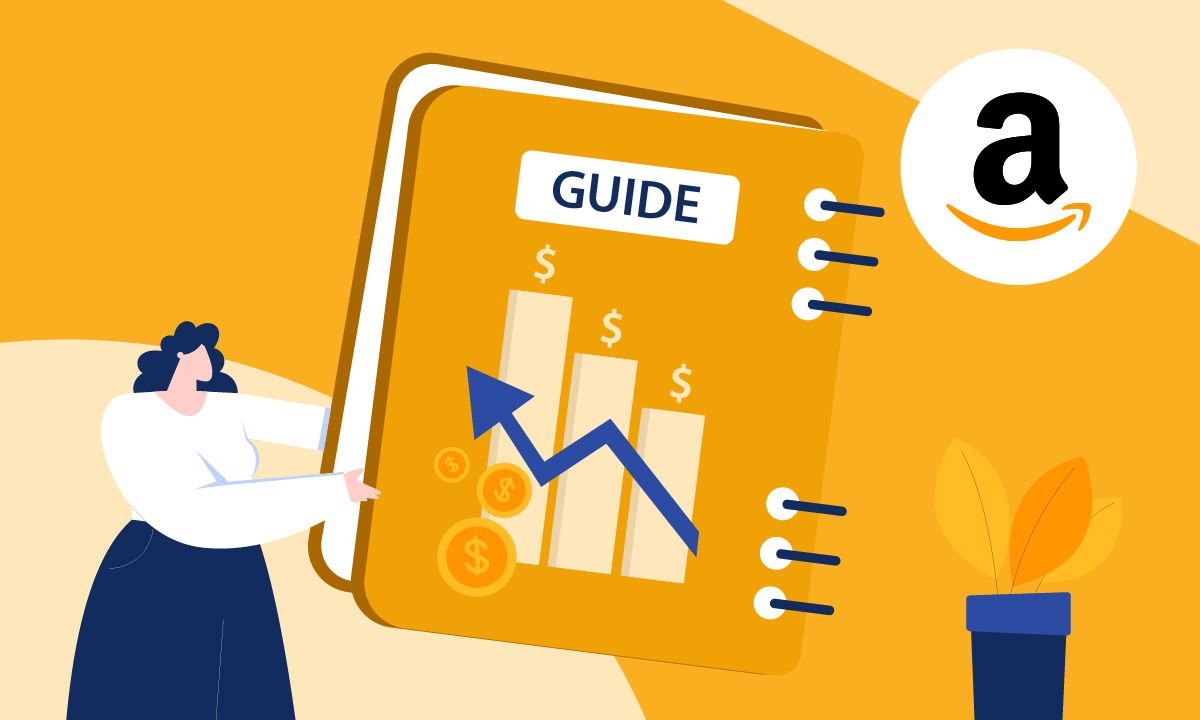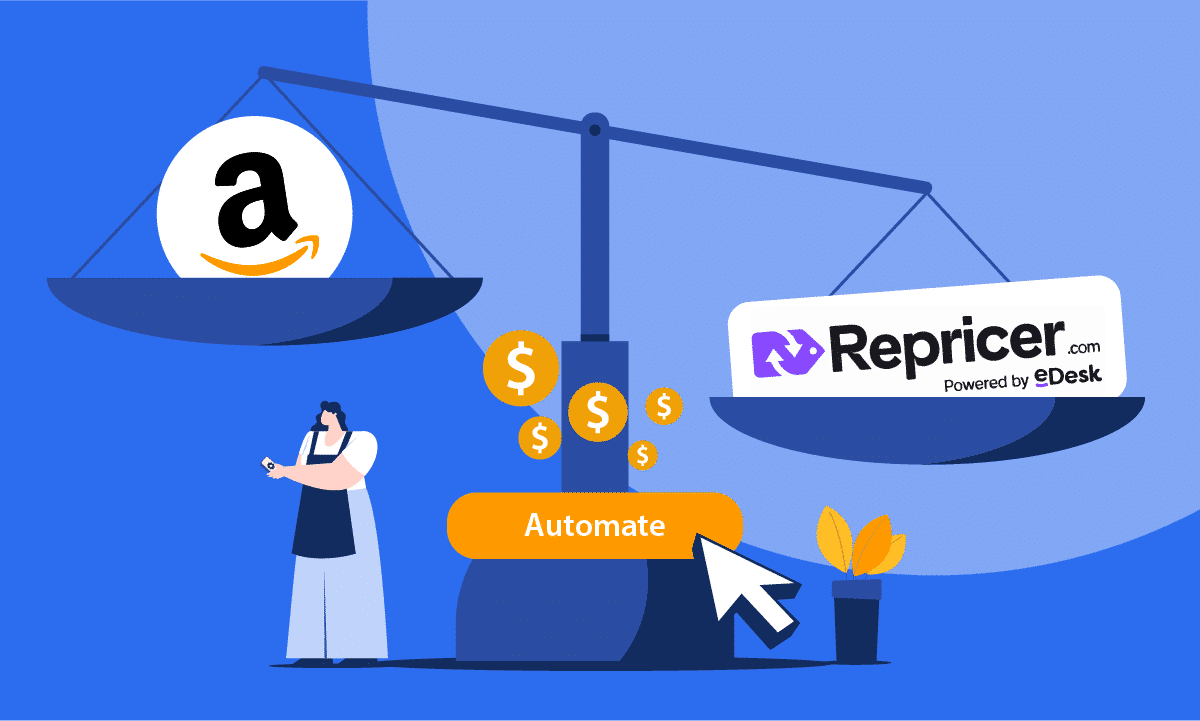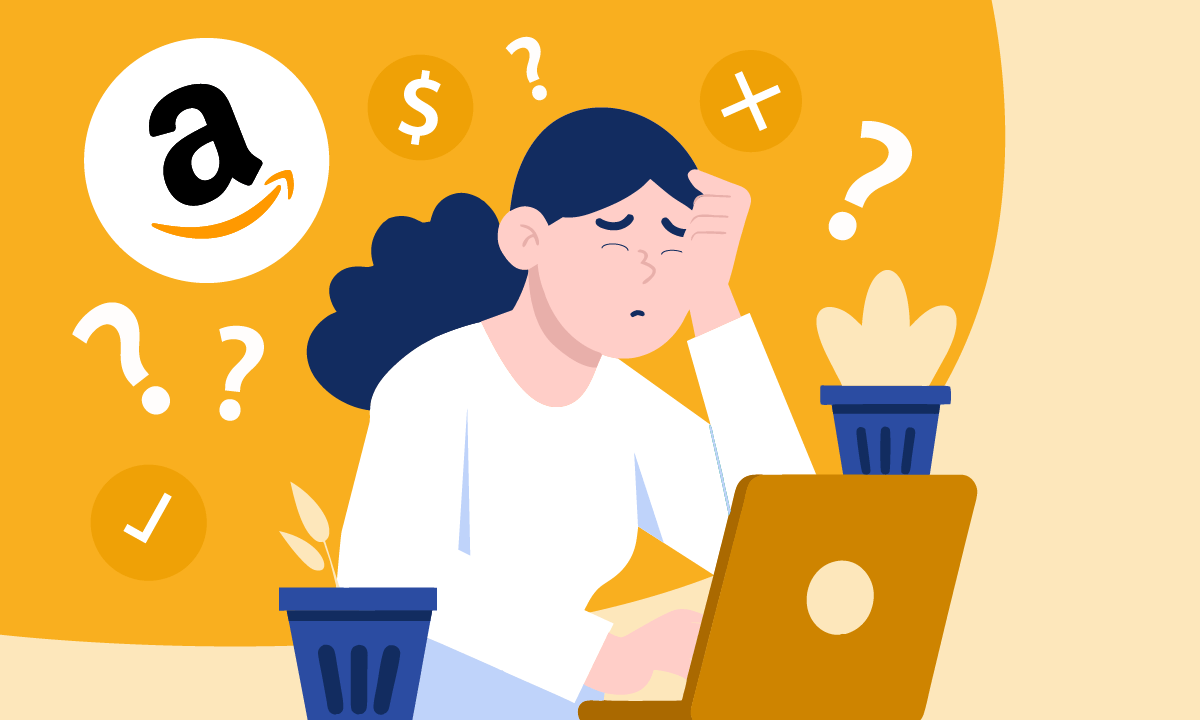If there’s a product you’re in need of, chances are you can find it on Alibaba. Chinese-owned Alibaba is the biggest ecommerce website in the world. It is a B2B (business-to-business) marketplace, making it the perfect place for sellers in North America and Europe to seek out factory-made products produced in China. It is the place to go when looking to source private label products.
The Alibaba marketplace has great potential but it can take some know-how to navigate effectively. If you’re wondering how to navigate Alibaba, including finding reliable suppliers, negotiating pricing and shipping rates, look no further.
We’ve got you covered with this guide that explains all about how to source and negotiate on Alibaba, helping sellers around the world tap into one of the biggest and most exciting wholesale product markets in the world.
Background of Alibaba
Alibaba is the world’s largest ecommerce company and one of the largest wholesale websites online. It was founded in China in 1999, it has been a publicly traded company on the New York Stock Exchange (NYSE) since 2014.
Alibaba lets you buy products in bulk at affordable prices. It is possible to use Alibaba to buy single items if you are able to negotiate a single-item price with its seller, but the real benefit of Alibaba lies in its ability to work directly with manufacturers. By doing so, you can negotiate bulk pricing at high volumes and even design and produce your own custom products.
Many brands and retailers (both online and brick-and-mortar) stock their stores with products sourced from Alibaba. It’s simply one of the most convenient sources of bulk items and stock.
The difference between Alibaba and AliExpress

You may have heard of AliExpress, another website owned by Alibaba. While the two are related, they are not the same and serve different purposes. Whereas Alibaba has a B2B business model that focuses on connecting buyers with manufacturers and bulk items at wholesale prices, AliExpress is geared more to a B2C audience. On AliExpress, you can purchase branded products in single quantities for higher prices. Essentially, AliExpress is like the retail arm of the wholesale Alibaba. Often, buyers will use AliExpress to source one product to evaluate and test it out, before putting in a larger wholesale order for that product on Alibaba.
Importantly, AliExpress offers dropshipping, which is attractive for those just starting out in ecommerce or looking to make passive income. Dropshipping means that you never have to hold inventory or stock; rather, when your customers purchase a product from your store, it’s shipped to them directly from AliExpress. This method can be attractive for new entrepreneurs.
Alibaba, on the other hand, is designed for wholesale and not dropshipping, since it has a minimum order quantity (MOQ) of at least $500.
Smart buying on Alibaba
As with any international sales transactions, it is important to do your homework and take the right steps to protect yourself and your business against fraud. Shopping with Alibaba is very safe if you follow best practices and precautions of buying from international suppliers.
Here are some steps you can take to vet and verify the supplier you are buying from on Alibaba:
- View the supplier’s import records. This allows you to see all the shipments the supplier has made overseas, particularly to your country. There are different supplier databases available on the market which will let you see this information for a fee (for example, ImportGenius and JungleScout offer such services). You can use this to see whether a supplier is making continuous exports to your competitors, thereby validating their authenticity.
- Google is your friend. In addition to looking at supplier import records, you can also find reviews of suppliers through a simple search engine query. Websites such as Supplier Blacklist also contain useful information about experiences with overseas suppliers.
- Purchase from Alibaba Gold Suppliers. A Gold Supplier is a supplier who has a premium membership with Alibaba. This is a great way of vetting suppliers because to qualify for Gold Supplier membership, the supplier must complete an authentication and verification process with a third-party security provider appointed by Alibaba. This is a useful way of ensuring authenticity. Alibaba Gold Suppliers will have an icon displayed on their profile that will identify them as such.
- Do not buy brand-name products. Global brands such as Disney, Nike and PlayStation require licensing to sell their products. You won’t find legitimate licensed products on Alibaba and buying counterfeit products can get you into legal hot water. So it’s best to avoid anything brand-name altogether when looking for suppliers on Alibaba. If you are looking to carry brand-name products, start by contacting the brand directly.
- Pay through PayPal or Trade Assurance. Both of these payment services have guarantees and vet the suppliers who use them for authenticity, so you are less likely to encounter fraud when paying using these methods rather than wire transfer. That said, there will be times when you are making large orders and a wire transfer will be necessary for payment. In this situation, make sure that the payee name matches the company name on Alibaba and that the country the payment is going to, matches the supplier country as listed on Alibaba. If there is a mismatch, this can raise red flags for fraudulent activity.
- Start small and work your way up. A good way to build relationships and trust with new suppliers is to start with smaller orders, and then grow your business with a supplier over time. Once you’ve ordered smaller quantities from a supplier and been satisfied that the quality of the items, shipment and payment are all above board, you can then grow the relationship by increasing your purchase volume.
At the beginning, it can seem daunting working with overseas suppliers. Following these basic steps can help you ensure that your transactions on Alibaba are legitimate. Protecting your business and its finances against fraud is key when working with new suppliers.
Avoiding poor quality items
Most suppliers on Alibaba are located in China, a country whose manufacturing economy produces almost every product imaginable! While there are many great products to be found in China, unfortunately there are also factories which produce inferior quality products. So, how can you, as an overseas buyer, make sure to avoid the latter?
For starters, vetting suppliers (using the methods outlined above) is one useful way of avoiding poor quality products. If your vetting process identifies a supplier who is regularly selling to competitors in your country, it is likely that their products are good quality.
Also, keep it simple. The simpler the product you order, the more likely it is to be satisfactory in quality. Complicated, or fiddly products can often be lacking in quality since mass production can sometimes sacrifice quality.
Finally, some product categories should be avoided altogether as they are dangerous or often restricted internationally. These include electronics, electrical items, some toys, consumables or baby items. As you can imagine, such products are regulated differently in various countries, so the standards in China may not align with the consumer standards required for these products in Europe or the USA.
Deciding what to purchase for sale
There are millions of products available on Alibaba, across a number of different niche markets. In order to start making inroads with suppliers, you need to decide what you want to sell by choosing a niche. Otherwise, the choices can be overwhelming!
There are evergreen niches, like sports or fitness equipment, but there are also products that are an extension of current trends. You can find out what’s popular by using Google Trends to identify what people are searching for.
You can also look at Amazon’s best-selling products across different categories to see what is hot in the marketplace at the moment. Websites such as Trend Hunter can give you an idea of what current global trends are, and what people are getting into on social media and ecommerce websites.
Finally, you can use product research tools available online to give you top insights using data and trend metrics to steer you in the right direction of products poised to be top sellers.
Finding top suppliers on Alibaba

Once you know which products it is that you want supplied, you need to find the right supplier on Alibaba to purchase them from. To get started on Alibaba, you must create an account. You do not need to have a company in order to do so. Alibaba allows a single person to buy from its suppliers, you simply need to create an account and put whatever name you wish in the ‘company name’ field. It’s not required that you actually have a registered company.
Then, once you know which products you are looking for (this ties directly into having an idea of your niche and knowing what you’ll want to sell to your customers), you can begin your search!
Using Alibaba’s search engine, you can find products and the suppliers who offer them. It’s important to look at listings with a critical eye. You should be asking yourself questions such as:
- Is the photo genuine or is it a stock photo of the item? Obviously, you want the photo to be genuinely taken by the supplier so that they are showcasing exactly what they are supplying, not a stock photo of the item.
- Does the photo have a company watermark? This gives credibility to the supplier and their business.
Small details such as these can help you consider whether the supplier is genuine.
Once you’ve found the products you’re looking for through credible listings, you can then make a shortlist of several suppliers using the supplier vetting process outlined above. From there, you can start getting in touch with each of your suppliers to ask for quotations.
Liaising with Alibaba suppliers
There are some best practices for getting in touch with Alibaba suppliers. The most credible suppliers can be choosy about who they work with, so you want to put your best foot forward as a buyer, especially if you don’t yet have a track record buying from Alibaba suppliers.
- Look at their response rate. Alibaba lists each supplier’s response rate in their profile. You can choose to work with those who have a higher response rate, but crafting well-written messages will also help ensure the likelihood of a response.
- Be concise and to the point. Bear in mind that English is usually a second language for Alibaba suppliers, so you want to make your enquiry as easy to understand as possible. Avoid superfluous words or big blocks of text. Simple bullet points are best.
- Be specific. Ask for details regarding a specific product. You want to save time but also get answers to the most peripheral questions.
- Consider using WeChat. Chinese suppliers do most of their communication over WeChat (a Chinese messaging app) as opposed to email. You want to make it easy for suppliers to communicate with you, and asking them to move the conversation to WeChat is a good way of doing so. Bear in mind that communication methods popular in Europe and the US such as WhatsApp, Facebook, and Dropbox are all banned in China. Do not share links to any of these and stick to WeChat.
- Don’t mention MOQs. Minimum order quantities (MOQs) are standard with most suppliers. However, you don’t want to ask about these straight out of the gate. Save that query for the negotiation phase.
Here is how an ideal intro email from a buyer to an Alibaba supplier can read:
Dear Shanghai Trading Co., Ltd.,
I am from Fantastic Products Ltd., based in Manchester, UK. We are a retailer of patio furniture.
We are very interested in the furniture your company offers.
Can you please let me know the cost for your 3-piece Umbrella Outdoor Set, product number XFHU2346, as shown here [INSERT URL LINK TO PRODUCT ON ALIBABA]
Also, what is your WeChat ID please?
Thank you,
John Smith
An intro email like this one ticks all the boxes – it’s to the point, specific about what the buyer is after, and, importantly, shows you are aware of the supplier’s time.
How to negotiate with Alibaba suppliers
Once you’ve made your initial contact with an Alibaba supplier and received a price quotation for the product you’re after, you’ll want to get the best price per unit, as well as a reasonable MOQ.
To start the negotiation process, you will need to know the market value of the products you’re considering purchasing. This is why you want to go to several suppliers at once – so that you have a basis for comparison. If one supplier is charging you a lot more for the same product, you need to know why. Is it because their product is superior quality, or is the higher price unwarranted given market conditions?
Also, when evaluating prices, consider factors such as:
- Shipping costs. Some lower-priced suppliers will have higher shipping terms, such as EXW (ex works) rather than FOB (free on board). This means that even though the items are priced lower, you’ll be paying a lot more for shipping, bringing the costs to parity against competitors or even higher.
- Item quality. As discussed above, sometimes items cost less because their quality is not as high. This is where pictures and product specifications (including materials lists) are useful in ensuring that you’re buying the item at the right level of quality.
- MOQs/order minimums. Again, this can be a trap because it could be that the individual products are priced lower, but the catch is that you must buy huge quantities to place an order at that unit cost. This is definitely something to look at when evaluating price.
Once you have a few competing offers that all meet the same general quality standards, you can ask suppliers to match the lowest price offer. There is not a lot of room for negotiation with Chinese suppliers but you can get a discount of up to 10% if your counter-offer is legitimate and based on competitors’ prices and market conditions.
Negotiating MOQs can be easier, in a way, because offering pre-payment in exchange for smaller quantities is attractive to suppliers. You can approach this by offering a purchase order (PO) for a smaller quantity of items, explaining to the supplier that you’ll purchase larger subsequent orders if the initial order works out.
When you do this, tell them to invoice you, and offer payment straight away. Few suppliers will be able to turn down immediate payment and this tactic can help you circumvent MOQs.
Finalising your Alibaba order, shipping and paying
Once you’ve negotiated your prices, you can then complete the order. Suppliers will send you what’s known as a ‘proforma invoice’, which is essentially just a standard invoice. Depending on the cost of your order, you can use Alibaba’s Trade Assurance or PayPal to pay if the order is smaller (under $5,000 typically).
For larger value orders, you’ll need to use wire transfer to pay. The standard is 30% deposit, with the remaining 70% due once the order is ready to ship.
Shipping will typically be handled by the supplier and you can ask them to simply add the shipping cost to your invoice. For orders under 200lbs, you can use couriers such as FedEx or DHL, which are very straightforward.
For orders exceeding 200lbs, you will need to use sea freight, which is a bit more complex as it requires a freight forwarder. Here is an overview of how freight forwarding works. For those shipping products to Amazon FBA warehouses, there’s a process for that too and you can read about it here.
You may be liable for duty costs depending on which country your goods are being shipped to. Most countries have generous rules that waive duty costs for shipments less than a certain amount, so do check your local customs regulations.
Once you’ve organised your shipment and paid, that’s it! You’ve completed your first supplier order on Alibaba.
Using Alibaba to build your business
It can seem daunting when you start working with overseas suppliers, but it’s a key part of growing your business. Once you’ve done it a few times, you will get the hang of it and will start building your reputation. When Alibaba suppliers understand that you are a trusted customer, you’ll be able to build relationships with suppliers and negotiate better terms and prices.
The process gets easier over time as suppliers and customers get to know and trust one another. Remember, the more you work with suppliers, the easier it becomes, and the more your business benefits. A healthy pipeline of quality products at competitive prices from reliable suppliers will help you grow your business and take it to the next level.

